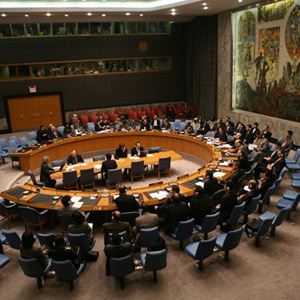New Sanctions and the Restive Society
By Dr. Ali Bigdeli

 In an interview with AFP on Sunday, US point man for the Middle East, Jeffrey Feltman, said that Iran faces a new set of sanctions if it refuses to abide by regulations governing nuclear programs.
In an interview with AFP on Sunday, US point man for the Middle East, Jeffrey Feltman, said that Iran faces a new set of sanctions if it refuses to abide by regulations governing nuclear programs.“There’s a body of law and procedures and regulations that govern nuclear programs. Iran is simply ignoring those. There have got to be consequences for that,” Feltman said. He also added that “the international community needs to be speaking with one voice to show Iran that there are consequences of that, and sanctions become part of this discussion.
” Foreign Affairs analyst Dr. Ali Bigdeli has commented on the link between Iran’s domestic developments and new sanctions against the nuclear program:
The post-election turmoil in Iran and the gap between social groups and political camps have deeply affected Iran’s foreign diplomacy, limiting its maneuverability to a large extent. Foreign Minister Manouchehr Mottaki’s recent remarks in Bahrain (On Iran’s stance towards the sovereignty of Bahrain and the Iranian triple islands over which UAE claims sovereignty) may be a sign of Iran’s unwanted diplomatic flexibility. Meanwhile, Iran has to face the end-of-2009 deadline the United States has set for a response to nuclear proposals.
Hillary Clinton also has warned Latin American countries about their increasing ties with Iran, a warning which will no doubt affect Iran’s relations with countries such as Bolivia, Venezuela and Brazil.
Another important point: if new international sanctions are imposed against Iran, domestic crises will go on the rise. The Iranian society is prone to crisis. The recent months have been tough for both the state and the nation, with a new wave of unrest rising every few weeks. A disturbed society vexed by new sanctions will no doubt affect foreign diplomacy and West is well aware of that. It is currently monitoring Iran’s domestic developments, while the rift among higher political echelons is helping it to carry out its Iran agenda.
Parties to nuclear negotiations with Iran are trying to conclude the talks as soon as possible. Thus, they keep reminding Tehran that time is running out and it should give a positive response to the proposal supported by IAEA, that is, swapping enriched uranium stockpile with fuel rods for Tehran’s research reactor.
With the domestic circumstances unpromisingly turbulent, I believe that Iran cannot buy time anymore. West is trying to take advantage of Iran’s internal problems, prevent it from killing more time and impose its demands on Tehran.
The time for firmer decisions has come. Tehran is no longer able to boast that the sanctions will do it no harm. This could have been true a few years ago, but with the Iranian society afflicted by socio-political fissures, any new act of sanction will put the country into an unpredictable situation.

